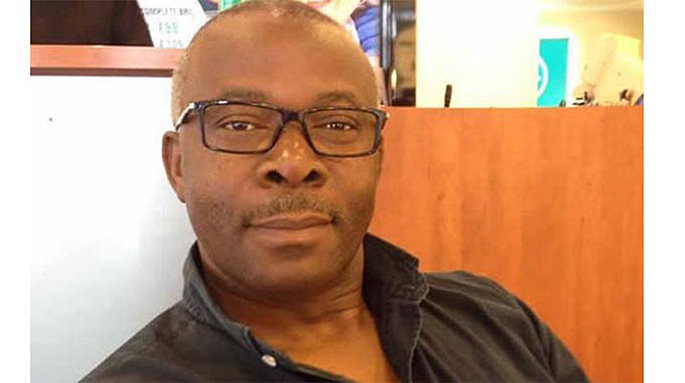
BY WINSTONE ANTONIO/AGATHA CHUMA LEGENDARY film producer and director Davies Guzha has said the local theatre scene needed reconfiguration.
NewsDay Life & Style spoke to Guzha in the backdrop of the World Poetry Day and World Theatre Day commemorated on March 21 and March 27, respectively.
World Poetry Day was adopted by the United Nations Educational Scientific and Cultural Organisation (Unesco) during the 30th General Conference in 1999 in Paris. The day is used to recognise and support linguistic diversity through poetry.
The World Theatre Day was initiated in 1961 by the International Theatre Institute and the theatre community.
“Of late, we used to do two shows of the same play a day, a 5pm and a 7pm show. All the shows would attract a full house because we were doing theatre that resonates with and was in sync with our people,” he said.
“These days, theatre plays are being done for the gratification of the creators as they are no longer speaking to audiences. Theatre is a living thing, there is nowhere we can disassociate it with our everyday life. We are the mirrors of society, so our plays must reflect that,” he said.
Guzha said theatre practitioners should introspect.
“We are the mirrors of the society so our plays must show that. When we do theatre plays and people are not willing to come and watch, it means there is something wrong. We are doing theatre for who? We have stopped developing theatre for our audiences, but doing it for ourselves,” he said.
- Chamisa under fire over US$120K donation
- Mavhunga puts DeMbare into Chibuku quarterfinals
- Pension funds bet on Cabora Bassa oilfields
- Councils defy govt fire tender directive
Keep Reading
“If people are paying to go to music shows, why can’t they also be paying people for theatre plays? Our approach has become academic as we are forgetting who we are. We need new writers as our theatre is in the dark.”
Savanna Trust theatre director Daniel Maphosa said for the past two years, the sector has faced serious challenges, resulting in reduced activity, particularly in mainstream theatre.
“Over the past two years, we have recorded a reduction in theatre activities, owing to COVID-19, limited capacity to utilise digital technologies and funding challenges,” he said.
“There has also been a significant reduction in audiences patronising theatre venues. However, we should be happy that the quality produced by many practitioners has been good.
“New voices, who have given a new impetus and outlook to theatre, have come into the sector and this is really an exciting development.”
He added: “The end of COVID-19 restrictions should usher in new energy to the sector. There is need for regeneration, aggression and investment into the production and distribution of theatre.
“New audiences need to be lured and new markets being explored if we are to remain relevant and sustainable.”
Veteran writer, poet, storyteller and mbira performer Chirikure Chirikure said: “Poetry writing and performance is growing each day with more new voices coming up. Audience is also growing, however, we could do with more platforms for the performances.”
“The biggest challenge is that there are not many local publishers with the capacity to publish poetry because of the economic situation and other factors. As such, some poets end up self-publishing, with the quality of the work getting compromised in some of the cases.”
As part of the Theatre and Poetry Day celebrations, some theatre practitioners and poets gathered at Theatre in the Park in Harare on Tuesday courtesy of the National Arts Council of Zimbabwe (NACZ).
Speaking at the belated commemorations, NACZ assistant director for arts promotions development Barbara Gotora said theatre practitioners played a pivotal role in evoking behaviour change.
“Our World Poetry and NACZ brings to the fore the importance of both poetry and theatre as vehicles for entrepreneurship,” she said.
“Today, theatre for development is a tool of choice for community development practitioners. This brand of theatre encourages active involvement of theatre consumers, particularly when theatre practitioners are trying to evoke behaviour change among the whole community. Through theatre, behaviour change among targeted society is being realised.”
She added: “Just like poetry, theatre, therefore, is an integral component of humanity as it affords communities a chance to laugh at themselves while taking measures to correct mistakes. It is gratifying to be able to celebrate these two days in the wake of the just relaxed COVID-19-induced lockdown and restrictions.”
Zimbabwe Theatre Academy’s Lloyd Nyikadzino said poets should acquire education and start their own businesses instead of lamenting lack of sponsorship.
“Most poets lament the failure to attract sponsors and yet they do not possess any educational background. Some even fail to answer simple questions during an interview about their piece of work because they do not have the required knowledge,” he said.
“Who must sponsor you in this world today? It is now time for artists to wake up and start their own businesses. We are in modern times, use the internet to search different businesses you can engage in and find partners to collaborate with.”
- Follow us on Twitter@NewsDayZimbabwe







